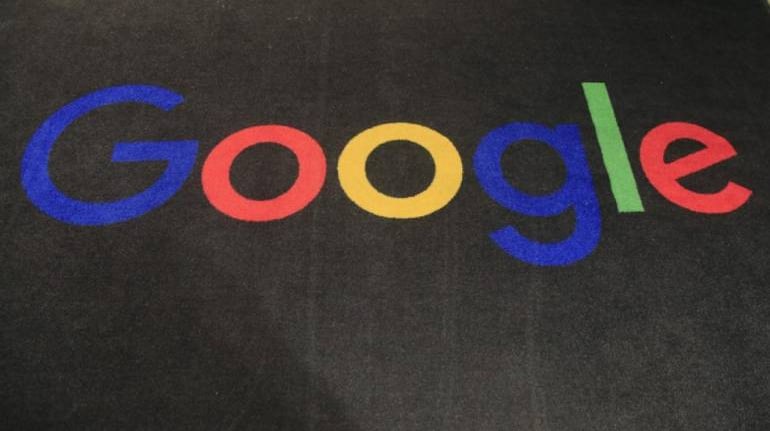



After a recent revision of pricing for Google Workspace offerings, several Indian Micro, Small and Medium Enterprises (MSMEs) raised concern over increased costs. One of the companies wrote an open letter to Google India’s senior management on August 17, saying that such pricing policies would cost Indian MSMEs an additional Rs 2,000-5,000 crore every year for certain services they would never use.
The letter written by Synersoft Technologies was targeted at Google India’s country head Sanjay Gupta, head of industry—agency partnership Mayoori Kango and Sales Director of Google Cloud India, Amit Kumar. A copy of the letter was also sent to the Competition Commission of India, and the ministries of MSMEs, IT and broadcasting, science and technology, industry and commerce, and finance.
Explaining the fallacy, Synersoft Technologies CEO Vishal Shah said that earlier, for each enterprise user they would pay around Rs 2,500 annually for G-Suite Basic 30 GB storage space plan. In case, say, two senior team members needed more storage space, only those two members could individually upgrade their plan to get 100 GB of additional storage space for an additional cost of Rs 1,300 per year per user.
But now, as of June, they were notified of a new pricing plan.
“Then Google announced rebranding G-Suite to Google Workspace with specific policy changes. We are informed that an additional 100 GB of storage is no longer available. One must upgrade to the 'Business Standard' category, which has a minimum storage of 2 TB and costs Rs 10,100 per year per user. They also declared that if you need more than 30 GB storage in a single account, you must upgrade all the accounts to 2 TB storage,” Shah said.
“So now, because I need 130 GB for a few users, I am coerced to upgrade all 50 accounts (of employees) to a 2 TB storage at a 400 percent higher price. It works out to be a yearly outflow of Rs 5,05,000 from Rs 1,28,900. It is unfair,” he added.
“Google knows that MSMEs like us can’t have data of 100 TB (50 users with 2 TB each), so we will not be able to use it. So, it does not need to provision 100 TB on its cloud and can still charge for 100 TB,” Shah said.
“Earlier Google email access would be around 7-10 percent of the total digital spending cost for operations which also included Software-as-a-Service (SaaS) subscriptions, hardware costs, internet costs etc. But, now with the pricing change and us needing to upgrade it for all 43 employees, the cost for Google email accounts only have up to 30 percent of the overall digital spending,” Bhagwat Patel, technical director of Gujarat-based Siddhi Engineers Aluminium Precision Tube told Moneycontrol. Patel’s firm manufactures satellite and spacecraft parts for ISRO and drone parts for DRDO.
Synersoft’s Shah added that Google has also limited the band of data transfer at one go, in case someone wants to download data and move to some other service.
“There are complex ways to export email data from Google Workspace. Most MSMEs cannot understand them, and all they can do is download all emails to the new service provider from Google. If I want to download all my emails to another service provider, Google has set a policy that I cannot download them continuously. It will allow a limited number of emails every hour and then wait for the next cycle. It takes days. And these days, my emails have stopped (read business),” he said.
Praveen Khandelwal, Secretary General, Confederation of All India Traders (CAIT) told Moneycontrol, “Global technology MNCs usually craft a particular strategy for India which includes offering goods at most cheaper rates and services initially either free or at a very nominal charge with several add-on facilities. Once people or companies become habitual with their services, they increase the prices. During the initial period these companies make use of AI and ML to track data and purchase capacity of each and every person/company using their services and at a later stage when the users become fully accustomed to their services, they start levelling high charges leaving no scope for the user to deny availing of services.”
Google offers tailored services
Responding to Moneycontrol's queries, a Google spokesperson clarified in a statement : "Since we launched Google Workspace in 2020, we’ve been helping our customers transition to our new editions with each customer's unique collaboration and security requirements in mind. The vast majority of our customers will see little to no change when they transition to Google Workspace offerings, and we are working with all our customers to help with the transition."
The spokesperson added, "Google Workspace offers tailored options that align with how customers want to purchase our integrated suite of apps, from smaller businesses looking to make fast, self-service purchases to larger enterprises with more complex needs. In addition, we’re investing heavily in the value of Google Workspace for all users across consumer, SMB, enterprise, education, and nonprofits."
Discover the latest Business News, Sensex, and Nifty updates. Obtain Personal Finance insights, tax queries, and expert opinions on Moneycontrol or download the Moneycontrol App to stay updated!
Find the best of Al News in one place, specially curated for you every weekend.
Stay on top of the latest tech trends and biggest startup news.